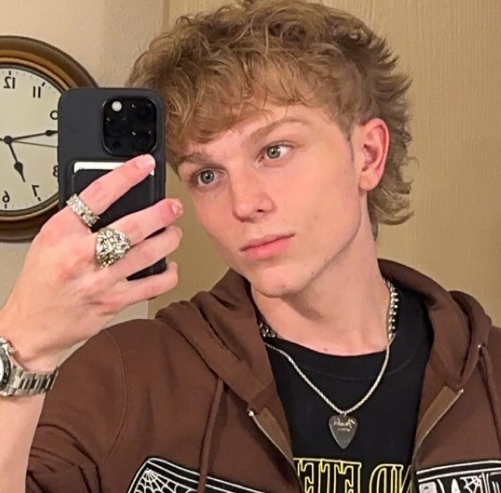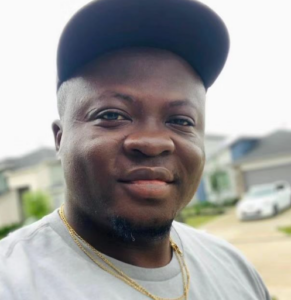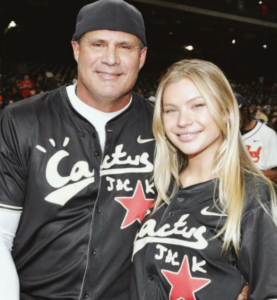The controversy surrounding Dean Withers and Bryce Hall’s leaked DMs is yet another reminder of the importance of accountability in the content creation space
As public figures with large followings, influencers must be aware of the impact their words and actions have on their audiences.
While personal growth and education are vital, past mistakes—especially those involving hate speech—cannot be brushed aside without consequence.
This incident also highlights the broader societal conversation about redemption, accountability, and the responsibilities of those in positions of influence.
Whether Withers’ apology will be enough to salvage his reputation remains to be seen, but the controversy has undoubtedly sparked important discussions about the power of words and the role of education in shaping public discourse.
Dean Withers’ apology to the BIPOC and LGBTQ+ communities underscores the fine line that public figures must walk between accountability and redemption. While Withers has taken the first step by publicly acknowledging his mistakes, the road to redemption is long and requires consistent effort.
In an era where every misstep is magnified by social media, public figures like Withers must navigate the complexities of personal growth and public scrutiny with care.

Also Read: Twitch Streamer JoshOG Shares Devastating News About His Mother, Career and Controversy
Table of Contents
Bryce Hall Leaks DMs with Dean Withers Using Racial Slur
The online world of content creation has once again found itself embroiled in controversy after Bryce Hall, a prominent social media influencer, revealed direct messages (DMs) in which political commentator Dean Withers used a racial slur.1
The incident, which took place on October 6, 2024, has ignited a significant backlash, further fueling ongoing discussions around the responsibilities of public figures and the consequences of past behavior.
Bryce Hall’s Shocking Reveal
Bryce Hall, known for his large following on platforms like TikTok and Instagram, took to his official X handle (formerly known as Twitter) to post an eight-second video of a conversation he had with Dean Withers on Instagram.
The chat, which dates back to April 22, 2019, features Withers using the N-word casually while praising Hall’s work. In the post, Hall captioned the video with the phrase:
“Not very woke of u, @itsdeann, smh (shake my head).”
In the leaked conversation, Dean Withers is seen writing:
“Hella goated, my n***a.”
Bryce Hall responds simply with “Thanks,” before the conversation moves on to discuss editing services and prices. While the exchange appears casual, the use of such harmful language has triggered a wave of criticism across social media platforms.

Dean Withers Admits to Using the Slur
On October 7, 2024, Dean Withers, a well-known political commentator and influencer in his own right, responded to the controversy through his own social media channels.2
In a statement addressing the growing backlash, Withers confirmed the authenticity of the leaked screenshots, admitting that they were “110% real.”
He acknowledged his past use of both homophobic and racial slurs, noting that similar screenshots had surfaced online previously.
“Screenshots of me saying the f-slur in 2022 and the N-word in 2019 have been doing their rounds here on X,” Withers stated.
“First, I would like to confirm that both of these screenshots are 110% real. I made a pretty long post about my past use of slurs on my Discord some time ago. I want to share a part of that with you all now.”
While I have a lot of traffic coming into my account, I thought I would share some invaluable resources with you guys. Help educate yourself the same way I did. Education is Everything.
Resources on Racism in America:https://t.co/LzFrtrbO8m
— Dean Withers (@itsdeaann) October 6, 2024
Acknowledging the Harmful Impact
Withers’ statement continued with an excerpt from a post he had previously shared with his Discord community, where he had reflected on his past mistakes and the impact of using offensive language.
He expressed deep regret and shame, describing his actions as “deplorable, harmful, and disgusting.”
“I am putting this announcement out not only to hold myself accountable but hoping you guys will hold me accountable as well,” he wrote. “Collectively, society should hold all accountable who hold harmful ideologies or use such language; regardless of follower count, political affiliation, or perceived ‘power.’ The use of slurs is deplorable, harmful, and disgusting and I am ashamed of my past actions.”
This message seemed to be an attempt to demonstrate accountability while urging his followers to hold him to the same standards that he advocates for in his political commentary.
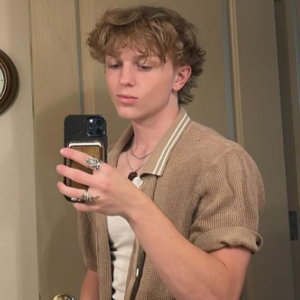
Lack of Education on Sensitive Topics
As part of his apology, Dean Withers attempted to explain his previous behavior by referencing a lack of education at the time.
He claimed that his offensive language in the past was due to ignorance surrounding sensitive issues such as race and LGBTQ+ rights. He used this explanation to highlight his personal growth and commitment to educating others on these topics today.
“As I speak about on my live streams often, the reason I host my debates is because I was once in a position where I lacked critical education surrounding the topics that I now adamantly preach about, and I now hope to share that same education that brought me to the truth with as many people as I can.”
Withers positioned himself as someone who has learned from his mistakes and now seeks to use his platform to raise awareness about these issues.
The Public’s Reaction to the Apology
Despite Withers’ apology and his attempt to contextualize his past behavior, public reaction has been mixed. While some have acknowledged that people can change and grow over time, others believe that Withers’ use of slurs, regardless of when they occurred, is inexcusable.
Many critics have pointed out that his statement, while apologetic, does not negate the harm caused by his words in the past. Furthermore, some have accused Withers of offering a performative apology, emphasizing that his confession came only after the screenshots were leaked, and not before.
Social media reactions have ranged from outrage to disappointment, with some users calling for Withers to face consequences, such as losing sponsorships or being deplatformed.
Others have argued that canceling individuals based on their past mistakes without acknowledging their growth can be counterproductive, especially if the person in question demonstrates genuine remorse and a desire to change.
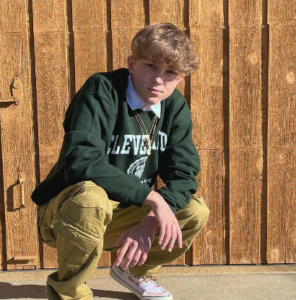
Also Read: Lindsey Vonn Shares Painful News About Dog Leo’s Diagnosis and Treatment
Dean Withers: Accountability in Influencer Culture
This incident once again raises important questions about accountability within the influencer and content creation community.3
As public figures, influencers like Dean Withers and Bryce Hall hold significant power in shaping public discourse.
When these figures use offensive language or exhibit harmful behavior, it can have a ripple effect on their audiences, particularly younger viewers who may view them as role models.
The question then becomes: how should influencers be held accountable for their past actions? Is there room for forgiveness and redemption, or should individuals face long-term consequences for language or behavior, even if it occurred years ago?
Withers’ case exemplifies the complexities surrounding these questions. While he has acknowledged his past mistakes and attempted to take responsibility, many argue that his platform gives him a higher level of influence, and with that comes a greater need for accountability.

Redemption and Growth: Can People Change?
- One of the key themes in this controversy is the possibility of personal growth and redemption.
- In his statement, Dean Withers expressed a desire to use his platform to educate others and prevent them from making the same mistakes he did.
- However, the challenge lies in determining whether his change is genuine or simply a reaction to public backlash.
- It is not uncommon for individuals, particularly those who gain fame at a young age, to make mistakes. However, when those mistakes involve hate speech or discriminatory behavior, they often leave lasting scars.
- The question many are asking is whether influencers like Withers should be given a second chance, especially if they show evidence of growth and take active steps toward making amends.
- As of now, it remains unclear what the long-term impact of this controversy will be on Dean Withers’ platform and career.
- While he has attempted to address the issue and take responsibility, it is up to his audience and the broader public to decide whether they will continue to support him.
- Withers has indicated that he plans to continue his work in political commentary and education, but he will likely face ongoing scrutiny as his past actions remain a point of contention.

Dean Withers Apologizes to BIPOC and LGBTQ+
In today’s digital age, reputations can be built and dismantled swiftly, especially when offensive behavior from the past comes to light.
Dean Withers, a 20-year-old public figure, found himself in hot water after screenshots surfaced online, showing him using slurs against the BIPOC (Black, Indigenous, People of Color) and LGBTQ+ communities.
In response, Withers took to X (formerly Twitter) to issue a public apology to the marginalized communities he offended. This incident, and its subsequent apology, sparked a heated public debate on the nature of accountability, personal growth, and the sincerity of apologies.
The Apology: Dean Withers Addresses Past Mistakes
- Following the release of the incriminating screenshots, Dean Withers quickly acknowledged his past transgressions.
- His public address on X was directed primarily to the BIPOC and LGBTQ+ communities, apologizing for the hurt and harm caused by his previous language. In his statement, Withers expressed deep regret, saying:
- “I would like to personally apologize to all members of the BIPOC and LGBTQ+ communities. Thank you to all of those who are holding me accountable in good faith today.”
- Withers’ tone appeared contrite and self-reflective. He acknowledged the importance of being held accountable for his words and actions, hinting that the fallout from this controversy might serve as a pivotal moment in his personal growth. He further stated:
- “I will never forget my motivation for doing what I do now, and neither should you.”
- This part of his message suggests that Withers views this apology as part of a larger journey of improvement, both in his personal life and his professional endeavors.
View this post on Instagram
Backlash from the Public: Skepticism Around the Apology
While some accepted Withers’ apology as genuine, others were quick to question its sincerity. The issue of whether public figures are truly apologetic or simply attempting to salvage their reputations has become a common theme when controversies arise.
In this case, critics pointed out that Withers’ apology came only after the offensive language was made public, which raised questions about whether he truly regretted his actions or was simply responding to the backlash.
One prominent voice in this conversation was Bryce Hall, a social media personality known for his candid opinions. Hall did not mince words when he responded to Withers’ apology. He accused the 20-year-old of playing the “I’ve matured” card, a criticism that resonated with many skeptical observers.
Hall tweeted, “Stop playing the ‘I’ve matured’ card every time something from your past comes out. Own up to it before you’re caught, not after.”
This sentiment underscores a broader issue within celebrity culture: the tendency for public figures to apologize only when their past behavior is exposed, rather than proactively addressing their mistakes. Hall’s comments highlight the skepticism that often accompanies public apologies, especially when they follow a scandal rather than precede it.
Also Read: John Force Recovery Update: Fans Share Supportive Reactions to NHRA Crash News
